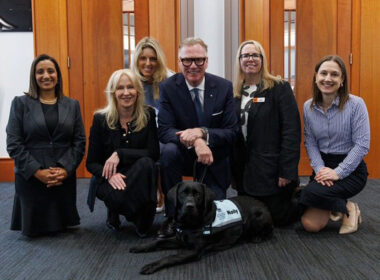A world-first project will chart every law and policy that has affected Indigenous communities in NSW in a voluminous truth-telling exercise resulting from the efforts of scores of pro bono solicitors.
Towards Truth is a collaboration between the Public Interest Advocacy Centre [PIAC] and the UNSW Indigenous Law Centre, and maps legislation and policy that has impacted First Nations people since 1788.
The interactive database, and easy to navigate accompanying website, will go live later this year. It is designed to tell the story of the impact of that policymaking through exploring and contextualising the post-colonisation experience for Indigenous communities.
Towards Truth can be explored by categories including child removal, land dispossession, language prohibitions and housing. The project is also exploring and researching areas like the participation of Indigenous Australians in democracy and the criminal justice system.
The name is inspired by truth telling as called for in the Uluru Statement from the Heart, alongside enshrined constitutional recognition through a Voice to Parliament and a “Makarrata Commission to supervise a process of agreement making between governments and First Nations.”
The new Federal Government has already indicated its support for implementing the Statement.
Much of the research in Towards Truth stems from original copies of government documents, as well as other scholarly material and occasional use of case studies, which have typically been sourced from previous inquiry reports.
Towards Truth will not just look at policies and laws deliberately established to directly affect Indigenous Australians; it also examines legislation that did not have that intention, but the laws nevertheless disproportionately affected Indigenous communities. An example of this are changes in NSW to the NSW Rock Fishing Safety Act 2016 and the prosecutions that have resulted for Indigenous communities taking part in cultural fishing practice.
“The actions of Australian governments and institutions have touched every aspect of the lives of First Nations people: from the dispossession of land to child removals, education, housing and the regulation of hunting and fishing,” Daniela Gavshon, PIAC’s Program Director for Truth and Accountability, told LSJ.
“We see an understanding of the history of official interaction between Australian governments and First Nations peoples as a critical foundation for justice.”
Gavshon, who gave LSJ a behind-the-scenes look at the website’s forensic-level detail as it prepares for launch, described the project as “vast and ambitious.”
“Initially, the project looked only at laws and policies that discriminated against First Nations people. After a one-year pilot, it was clear that this did not capture the full story of the way the law has, and continues to be, used as both an instrument for oppression and a tool for positive change,” Gavshon said.
“As a result, Towards Truth captures myriad laws and policies that impact First Nations people, including those with unintended or disproportionate negative impacts and those enacted to bring about positive change.
“We have started in NSW and hope that over time we will be able to build a national database to support truth-telling across the country.”
“There is nothing like it anywhere in the world. We have relied heavily on a range of partnerships to be effective and achieve the required breadth and depth. A number of law firms provide significant pro bono legal research. These include Herbert Smith Freehills, Clayton Utz, Lander and Rogers, Norton Rose Fulbright and lawyers from Macquarie Bank.
The pro bono lawyers are supported by a network of subject matter experts and academics, who provide guidance to the research team, and review material in the database.
Professor Megan Davis, a constitutional law expert and co-chair for the Uluru Dialogue who has been heavily involved in Towards Truth through her role at the UNSW Indigenous Law Centre, wrote in a recent opinion piece for The Australian that “the heavy-lifting of the forensic work required to bring the Toward Truth project to life has been led by a group of young indigenous lawyers and law students, under the skilled supervision of the PIAC team as well as many of the corporate law firms that endorsed the Uluṟu Statement from the Heart years ago in 2017.”
“Their tactile commitment to the realisation of Uluṟu invaluable,” Professor Davis wrote.




